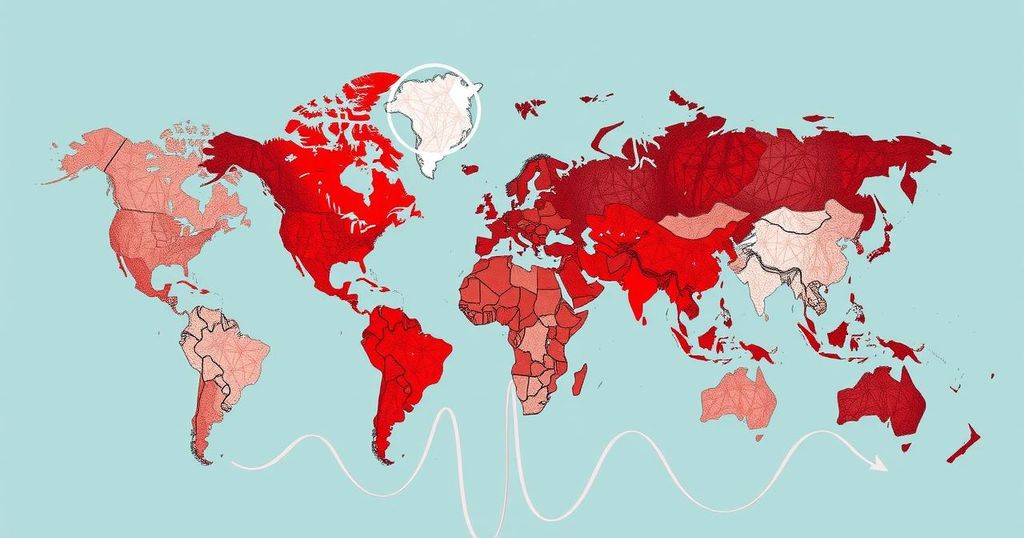The Impact of Misinformation and Foreign Influence on Elections in 2024
The year 2024 featured a landmark turnout of 3.7 billion eligible voters across over 70 countries in what was termed a ‘super year’ for elections. Despite reassurances from social media giants about the limited impact of misinformation and foreign interference, significant instances arose, particularly in Romania, demonstrating that the challenges to electoral integrity remain prevalent. Misinformation campaigns, augmented by generative AI, highlight ongoing threats to democracy that necessitate stronger defenses and regulatory measures.
The electoral landscape of 2024 marked a historic moment, witnessing over 3.7 billion eligible voters from more than 70 countries. This unprecedented turnout occurred in what has been described as a ‘super year’ for elections, affecting both democratic nations such as the United States and India and authoritarian regimes including Belarus and Russia. Amidst this backdrop, however, the enduring issues of misinformation, foreign influence, and the threats posed by generative AI became apparent, impacting electoral integrity and public perceptions.
Meta, the parent company of platforms like Facebook and Instagram, indicated that the anticipated dangers of generative AI to political processes were, in their experience, not as significant as feared, suggesting any negative effects were limited. In contrast, investigations by the Centre for Emerging Technology and Security concluded that recent European elections were largely unaffected by misinformation, and no definitive proof of foreign interference swaying outcomes in the United States presidential race had emerged.
However, the narrative regarding the purity of electoral processes shifted dramatically when a Romanian court annulled the results of its presidential election due to credible intelligence pointing to foreign manipulation in the campaigning strategies of the frontrunner, Calin Georgescu. This incident underlines the persistent risk of state-sponsored disinformation campaigns and their ability to disrupt the democratic process, emphasizing the need for vigilance against such threats.
Several marked events highlighted the role of misinformation and foreign interference throughout the election cycle. Notably, the former Prime Minister of Pakistan, Imran Khan, embraced AI to simulate speeches, seeking to gain traction despite his imprisonment. In the EU, heightened concerns around disinformation materialized as platforms faced scrutiny for their roles in spreading misleading content, although they managed to conduct elections without considerable incident.
The complexities of the Moldovan referendum illustrate the subtle techniques of foreign interference; substantial funding was reportedly directed to sway public sentiment against EU membership. In the U.S., bomb threats on election day, reportedly linked to Russian entities, created chaos and raised concerns about security and election integrity. Finally, the unexpected annulment of Romania’s presidential election results draws attention to the critical intersection of technology and political integrity, highlighting the crucial need for robust regulatory measures regarding social media platforms.
Overall, the comprehensive outlook on the electoral events of 2024 articulates the persistent challenges posed by external influences and misinformation within democratic processes. As seen, while some elections navigated these challenges with relative stability, others were not as fortunate, prompting urgent discussions about the efficacy of current election safeguards in an increasingly digital world.
In 2024, global elections were anticipated to witness an unprecedented number of participants, with 3.7 billion eligible voters across numerous democratic and authoritarian nations. The increasing efficacy of misinformation tactics, enhanced by technological advancements like generative AI, posed a significant threat to the integrity of these electoral processes. Social media platforms, specifically, have come under fire for their role in perpetuating false narratives and enabling foreign interference. This year’s elections showcased the continuing struggle faced by democracies in combating these influences, often resulting in controversies and significant ramifications for electoral outcomes around the world.
The elections of 2024 served as a stark reminder of the vulnerabilities inherent in modern democracies, particularly regarding misinformation and foreign influence. The events highlighted the importance of vigilance and the need for comprehensive strategies to address these challenges. The drastic actions taken in Romania concerning foreign interference further emphasize the gravity of the situation, necessitating a reevaluation of existing safeguards to ensure the sanctity of future elections.
Original Source: www.euronews.com




Post Comment